Gas vs Electric Water Heaters: Ultimate Comparison
If you're considering a water heater replacement in Plano, choosing between a gas or electric option is a crucial decision. It's important to have a comprehensive understanding of the advantages and disadvantages of each type. This article will delve into the various factors that differentiate gas and electric water heaters. By evaluating factors like energy efficiency and upfront expenses, homeowners can make informed choices that suit their individual requirements.

How do electric water heaters work?
Electric water heaters work by using electrical energy to heat up water. They consist of a storage tank, heating elements, thermostats, and a control system. When you turn on a hot water tap, cold water is drawn into the tank through a dip tube, which directs the water to the bottom of the tank. Inside the tank, there are one or two heating elements suspended in the water. These heating elements are usually made of a metal alloy that heats up as electricity passes through it. Once the water is in the tank, the heating elements are activated and start to warm up the water. The thermostats on the water heater monitor the temperature of the water and control the operation of the heating elements. When the temperature drops below the set temperature, the thermostats signal the heating elements to turn on and heat the water. Once the water reaches the desired temperature, the thermostats shut off the heating elements. The control system of an electric water heater also includes safety features like a pressure relief valve and a high-temperature cutoff switch. The pressure relief valve releases excess pressure inside the tank, while the high-temperature cutoff switch shuts off the heating elements if the water temperature becomes dangerously high.

Benefits of electric water heaters
Electric water heaters come with a variety of benefits that make them a great choice for replacing your old water heater:
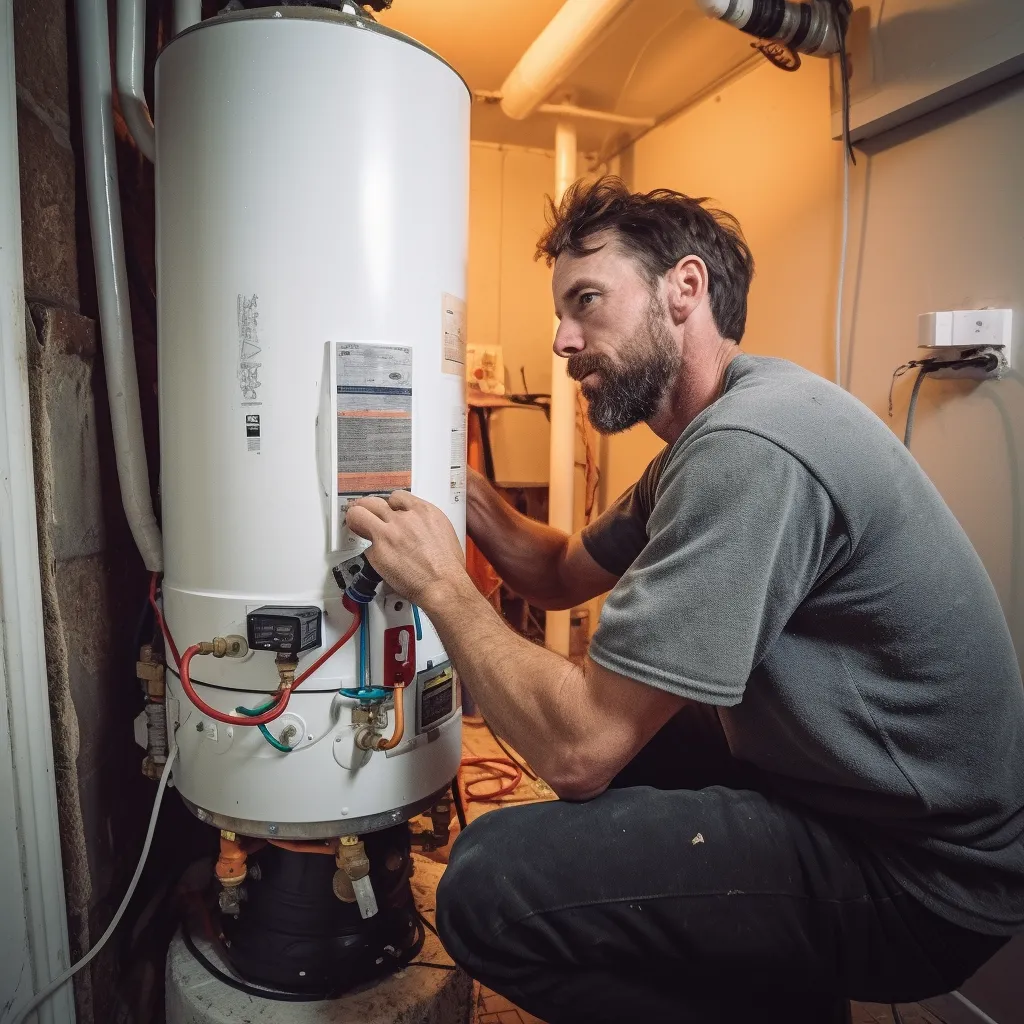
Energy Efficiency: Electric water heaters are known for their energy efficiency. They operate by heating the water using an electric heating element, which means there is no need for burning fuel or gas. This results in less wasted energy and lower utility bills, making electric water heaters a cost-effective option in the long run.
Safety: Electric water heaters are considered safe to use. Unlike gas water heaters, there is no risk of gas leaks or carbon monoxide poisoning with electric models. Additionally, electric water heaters typically have built-in safety features, such as a pressure relief valve, to prevent any potential accidents.
Easy Installation: When it comes to the installation process, electric water heaters are relatively easy to install. As long as your home has access to electricity and meets the electrical requirements, the replacement process can be streamlined and hassle-free. This means minimal disruption to your daily routine during the installation process.
Lower Maintenance: Compared to other types of water heaters, electric water heaters generally require less maintenance. They do not have complex systems or components that need regular inspection or cleaning. This can save you time and money on maintenance costs in the long run.
Environmental Friendliness: Electric water heaters are considered more environmentally friendly as they produce zero emissions during their operation. This makes them a greener choice for homeowners who are conscious of their carbon footprint and want to reduce their impact on the environment.
Downsides of electric water heaters
Electric water heaters have several disadvantages that homeowners should be aware of when considering water heater replacement.
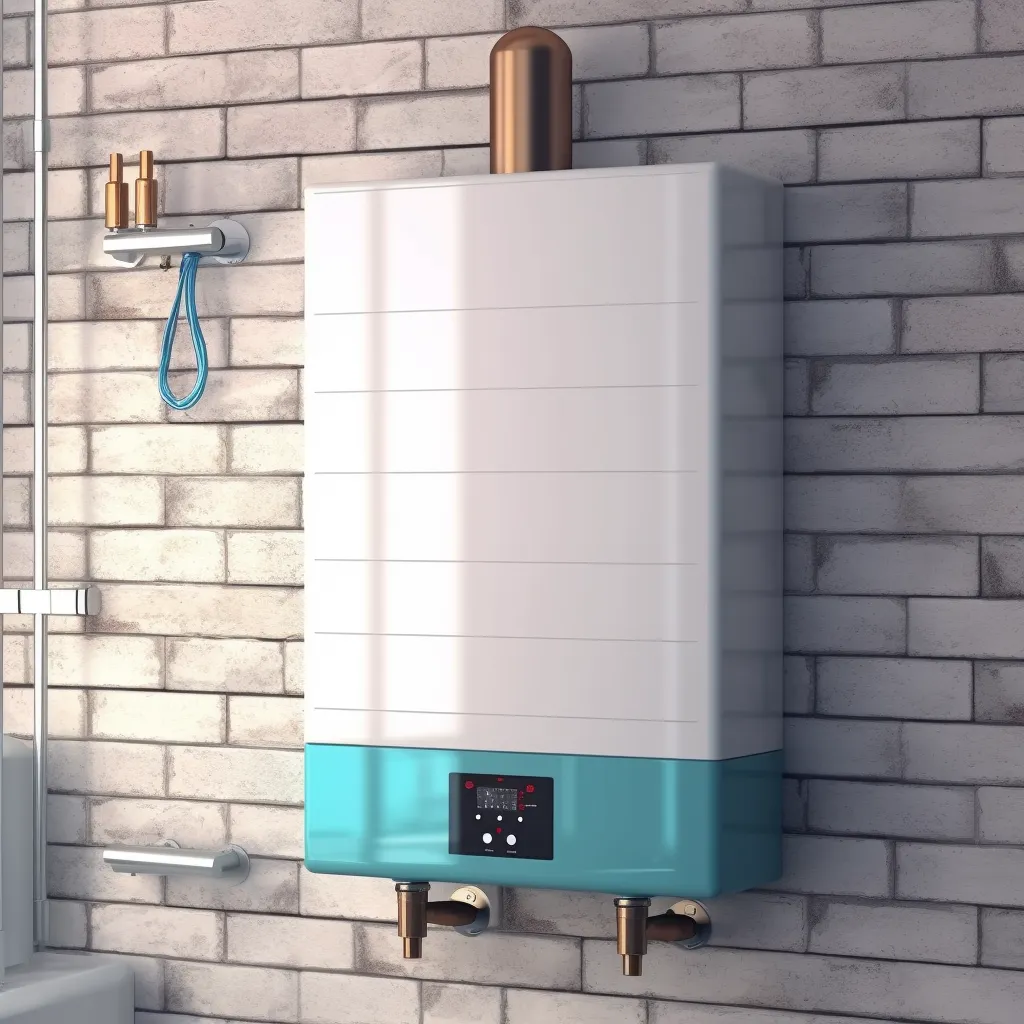
Electric water heaters tend to have higher operating costs compared to their gas counterparts. Electric heaters use electricity to heat the water, and electricity rates can be significantly higher than natural gas rates in some areas. This can result in higher monthly utility bills for homeowners.
Electric water heaters may have slower recovery times. The rate at which an electric heater can heat a new batch of water may be slower than that of a gas water heater. This means that if you have a large household with high hot water demands, there may be a delay in getting hot water when multiple fixtures are being used simultaneously.
Another disadvantage of electric water heaters is their reliance on electricity. In the event of a power outage, an electric water heater would not be able to function, leaving you without hot water until the power is restored.
Electric water heaters often have a shorter lifespan compared to gas water heaters. The heating elements in an electric heater are susceptible to mineral deposits and buildup, which can cause corrosion and lead to premature failure. Regular maintenance and flushing of the tank can help mitigate this issue but may require additional effort and expense.
Electric water heaters may have limited capacity options. Gas water heaters often come in larger sizes, allowing for more hot water storage. Electric heaters, on the other hand, may have smaller tank sizes, which can be limiting if you have a large household or frequently require a high volume of hot water.
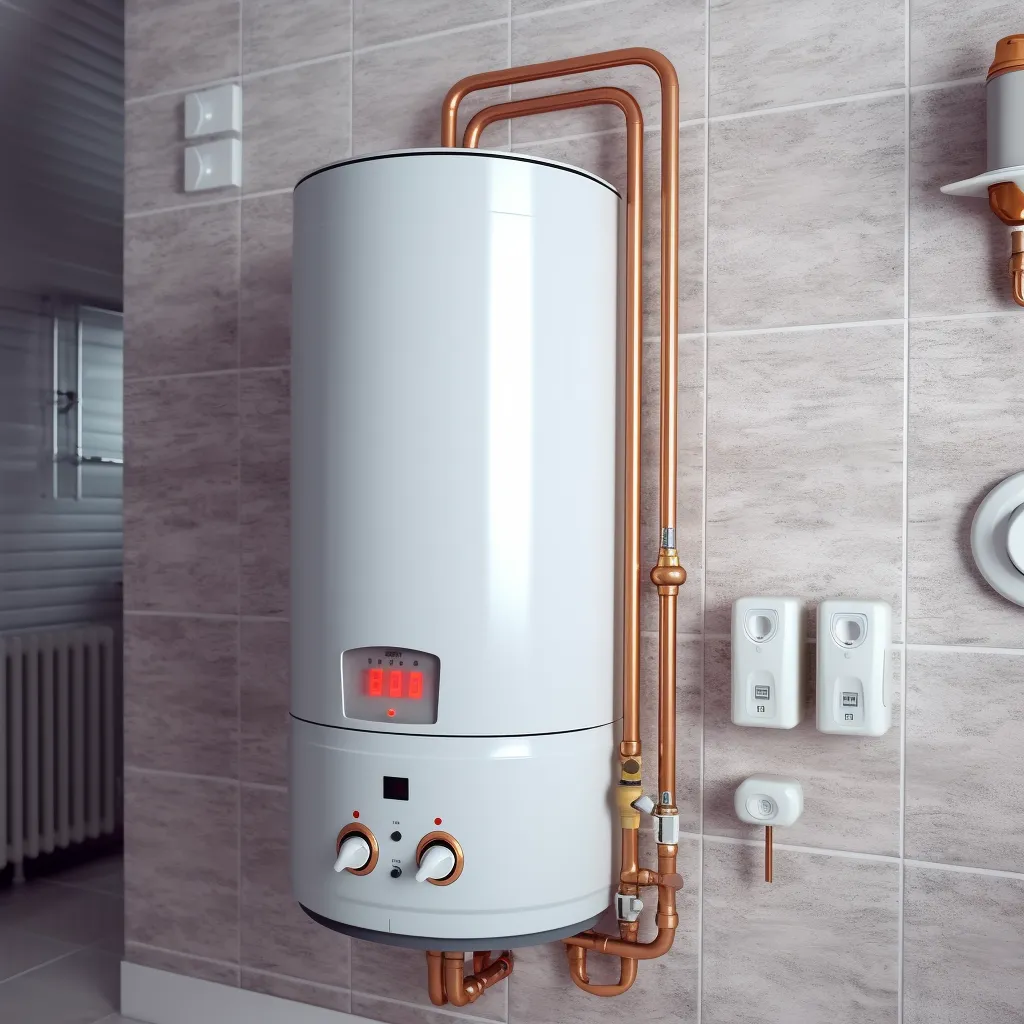
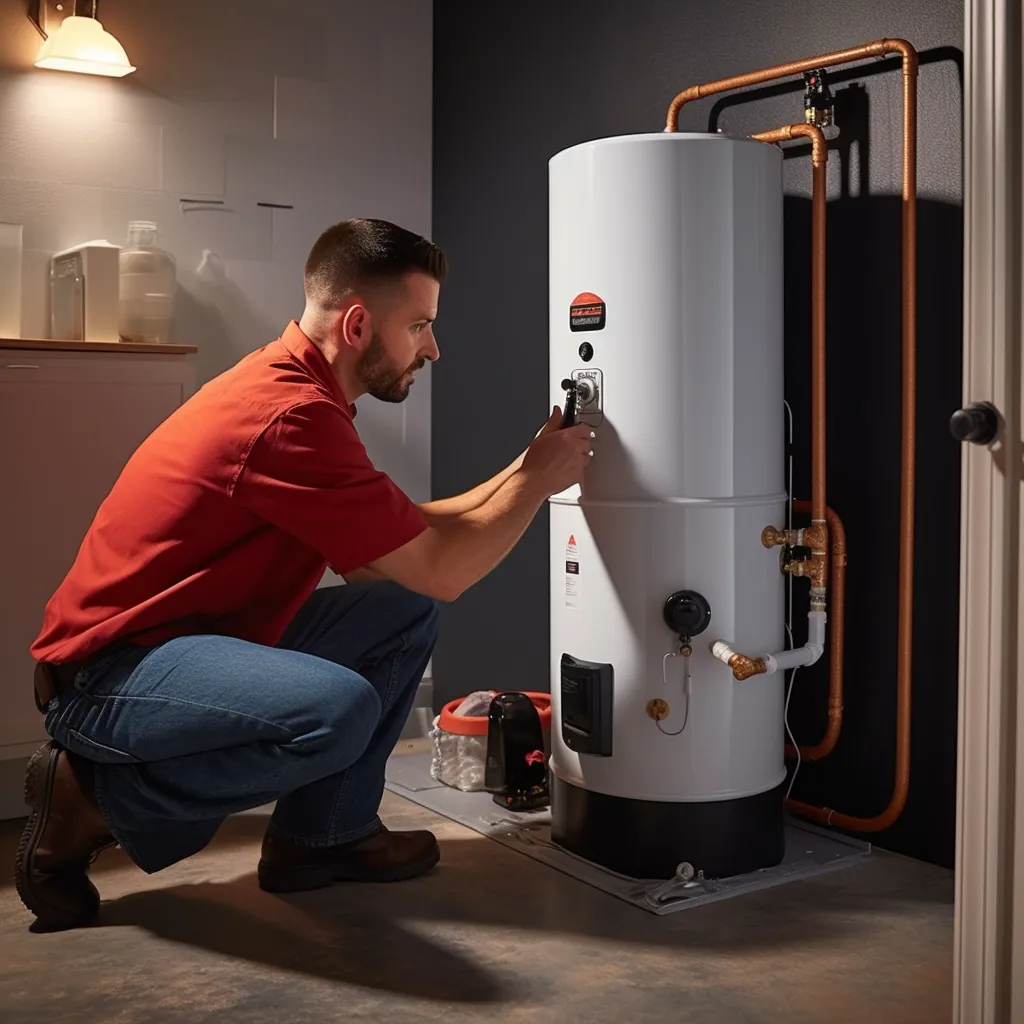
How do gas water heaters work?
Gas water heaters work by utilizing natural gas or propane to heat water. The system consists of a tank, burner, combustion chamber, flue, and various other components. When you turn on a hot water faucet, cold water enters the tank through a dip tube. Inside the tank, a gas burner ignites to heat the water. The burner is located below the tank and is connected to a gas supply line. When the gas valve opens, the burner ignites a mixture of gas and air in the combustion chamber. This produces a flame that heats the bottom of the tank and, consequently, the water within. As the burner heats the water, hot water rises to the top of the tank while cold water continues to enter at the bottom. This creates a natural circulation within the tank, maintaining a consistent supply of hot water. The heated water remains stored in the tank until it is needed. To prevent heat loss, the tank is insulated with a layer of insulation material. Additionally, some models have extra insulation to improve energy efficiency. A thermostat controls the temperature of the water, turning the burner on and off accordingly. When the water temperature drops below the set level, the burner reignites to maintain the desired temperature. To ensure safe operation, gas water heaters have a venting system. As the burner combusts gas, it produces harmful combustion byproducts, including carbon monoxide. The flue, connected to the combustion chamber, exhausts these gases outside the house. An exhaust pipe directs the gases away from the heater and releases them into the atmosphere.
Advantages of gas water heaters
Gas water heaters offer numerous advantages that make them a popular choice among homeowners. Here are some of the pros of gas water heaters:
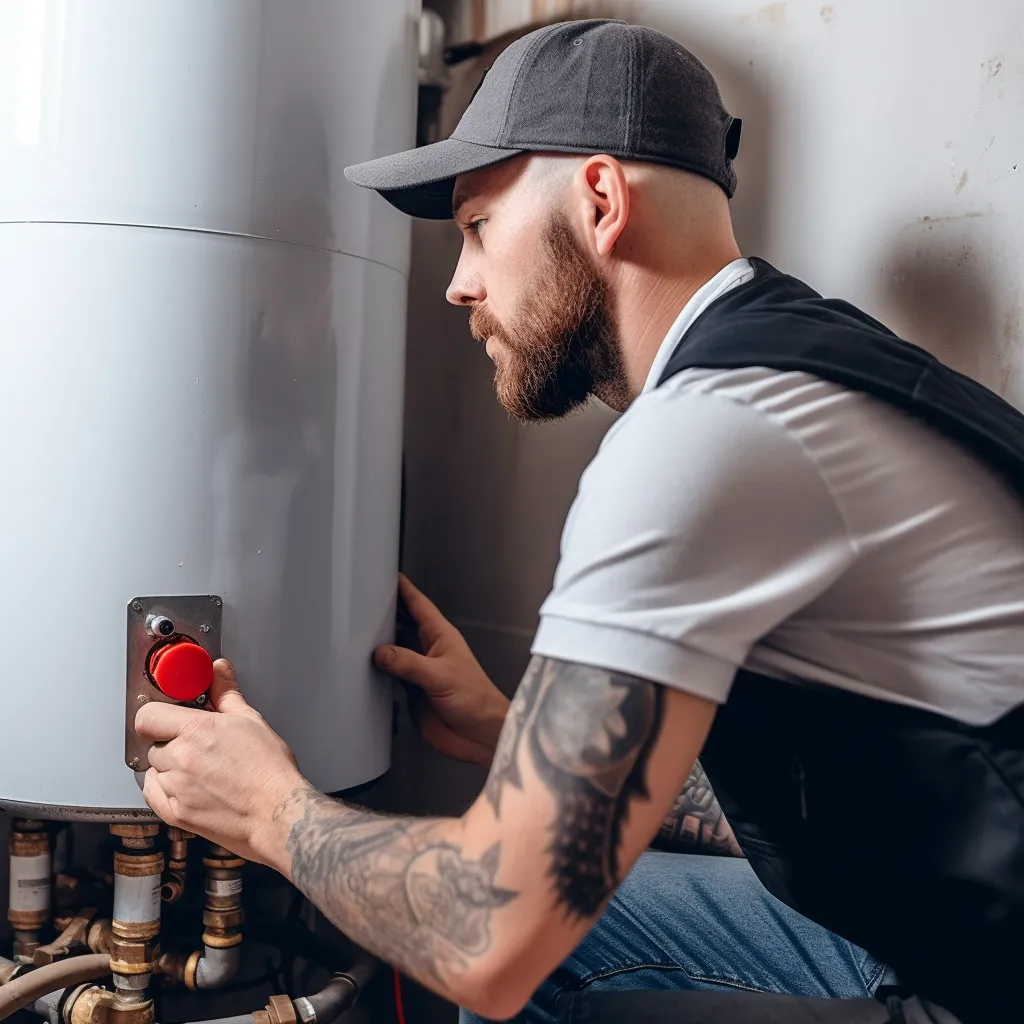
Efficient Heating: Gas water heaters are known for their quick heating capabilities. They heat water faster than electric water heaters, allowing you to have hot water readily available whenever needed. This efficiency can be especially beneficial for larger households where multiple hot water needs may arise simultaneously.
Cost-effective: Gas water heaters are generally more cost-effective in terms of energy consumption compared to electric water heaters. Natural gas, the fuel used by gas water heaters, is often more affordable than electricity. This can result in significant savings on energy bills, making gas water heaters an economical choice for homeowners.
High Recovery Rate: Gas water heaters have a high recovery rate, which means they can heat a large quantity of water in a short span of time. This is particularly useful in households with high hot water demands, such as families with multiple bathrooms or frequent use of hot water appliances.
Reliable Performance: Gas water heaters are known for their reliability and consistency. They can provide a continuous supply of hot water, delivering the desired temperature without fluctuation. This is especially important for households that rely heavily on hot water for various daily activities.
Less Maintenance: Gas water heaters generally require less maintenance compared to other types of water heaters. This is because they have fewer components and do not have heating elements that may need periodic replacement. However, it is still recommended to have regular maintenance and safety checks performed by a professional plumber to ensure optimal performance.
High Energy Efficiency: Modern gas water heaters are designed to be highly energy-efficient. Newer models come equipped with features such as improved insulation and advanced burner technology, which help reduce heat loss and increase overall efficiency. This not only saves energy but also contributes to a greener environment.
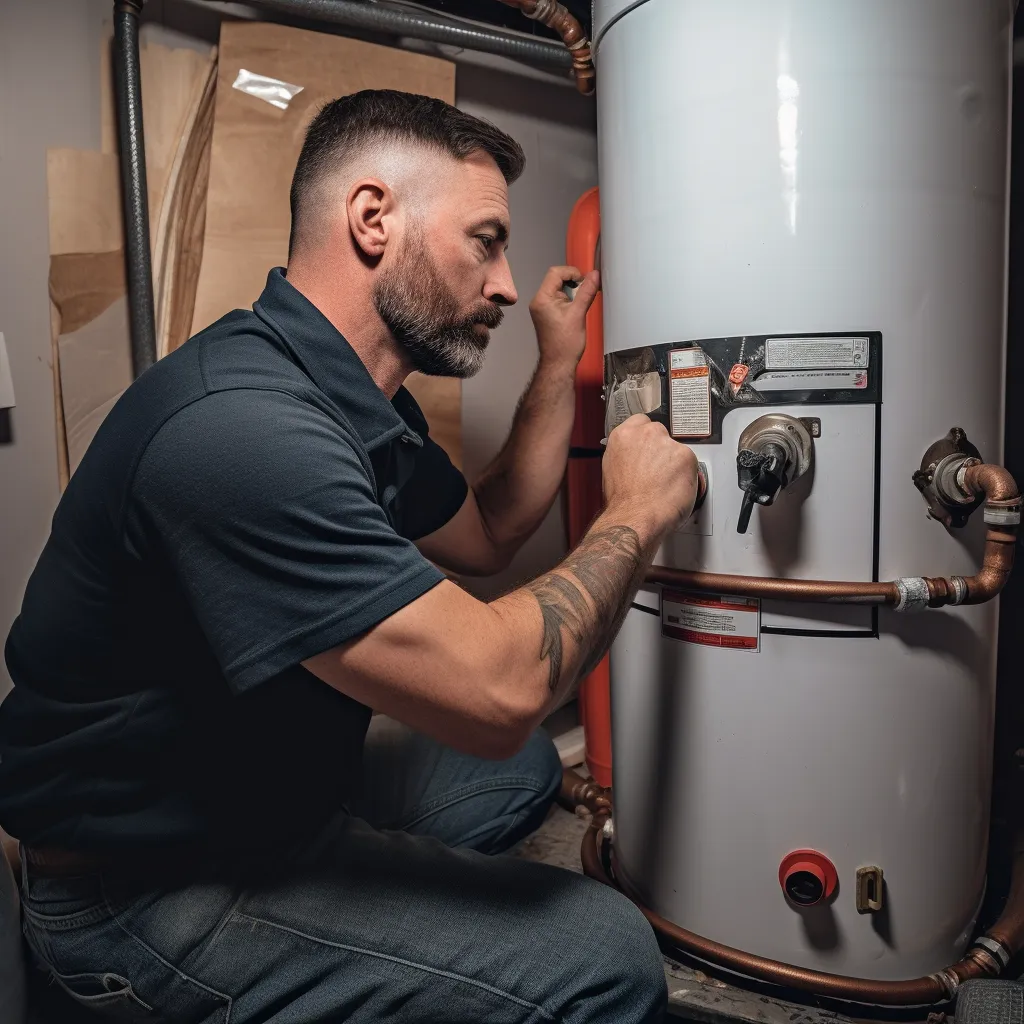
Downsides of gas water heaters
While gas water heaters have their advantages, they also come with a few drawbacks that should be considered before making a decision:
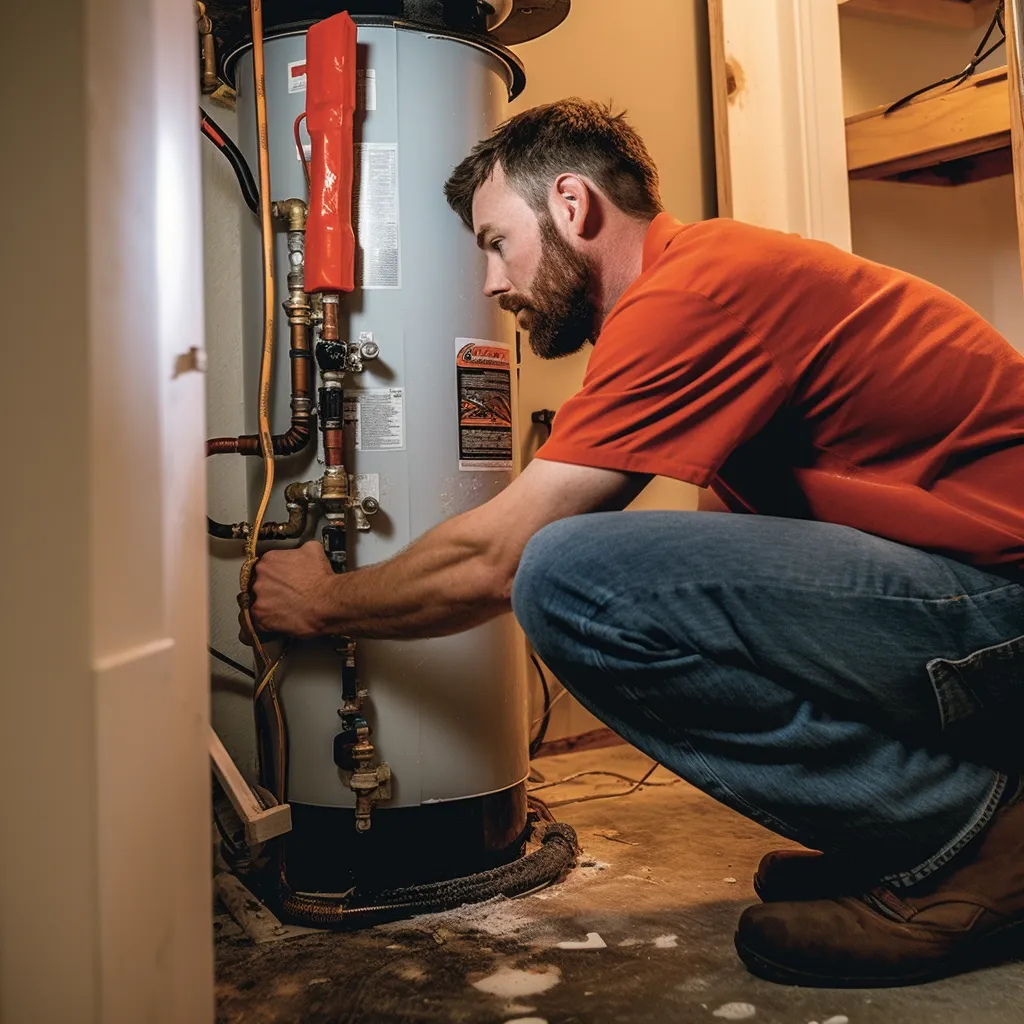
Limited energy efficiency: Gas water heaters tend to be less energy-efficient compared to their electric counterparts. They require a constant supply of gas, which can be expensive and contribute to higher utility bills.
Installation and maintenance costs: Gas water heaters typically have a higher upfront cost for installation compared to electric water heaters. Additionally, they may require professional installation due to the complexity of dealing with gas lines. This can add to the overall expense.
Potential safety concerns: Gas water heaters pose potential safety risks due to the use of natural gas. There is a possibility of gas leaks or carbon monoxide emissions if the unit is not properly installed, maintained, or vented. Regular maintenance and proper ventilation are crucial for preventing these hazards.
Limited lifespan: Gas water heaters generally have a shorter lifespan compared to electric models. On average, they last around 10-15 years, whereas electric water heaters can last up to 20 years or more. This shorter lifespan means that homeowners may need to budget for water heater replacement in Plano sooner.
Noise and low water pressure: Gas water heaters can be noisy, particularly during operation. While this may not be a significant concern for everyone, it can be an annoyance for those who prefer a quieter home environment. Additionally, gas water heaters may have lower water pressure compared to electric models, which can affect the overall water flow in your home.
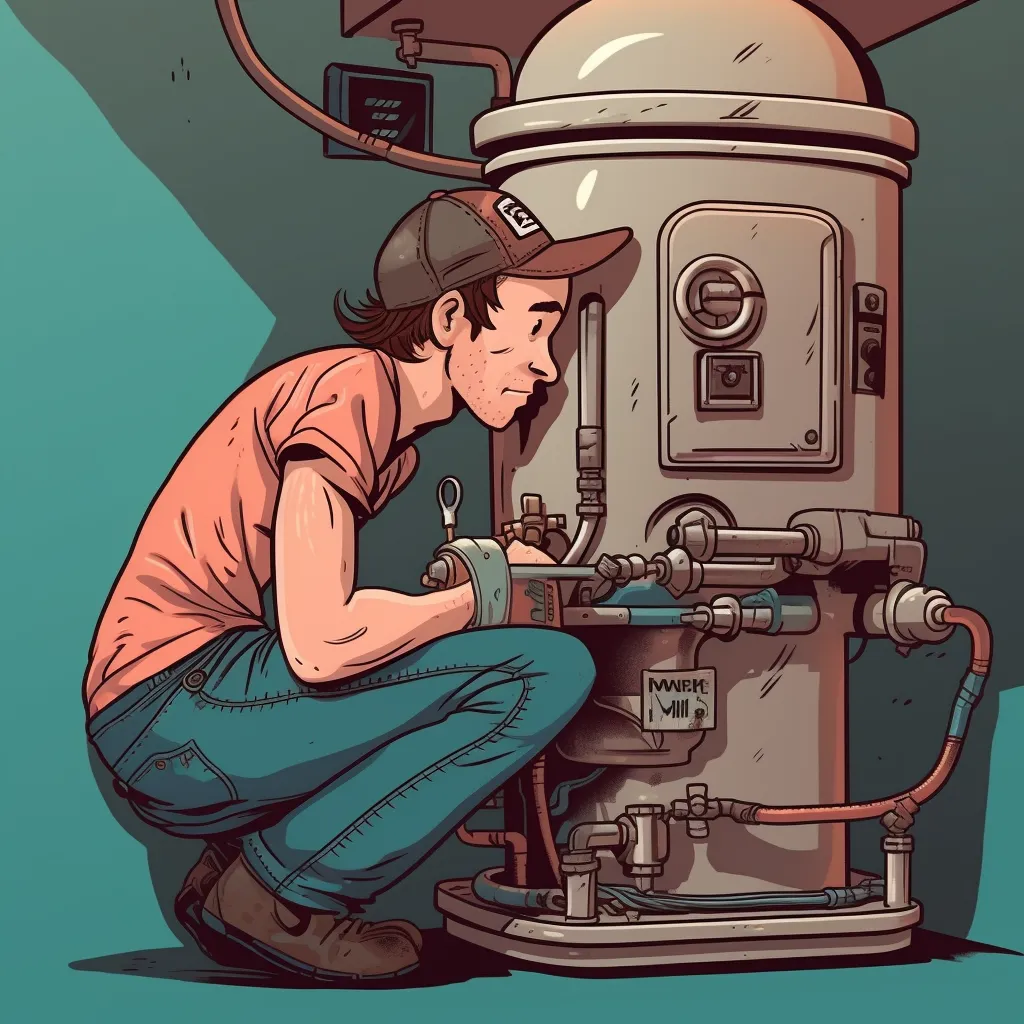
Are electric water heaters energy-efficient?
When it comes to energy efficiency, electric water heaters have made significant strides in recent years. With advancements in technology, electric water heaters have become more efficient and can now rival their gas counterparts in terms of energy usage. One of the key factors that contribute to the energy efficiency of electric water heaters is their ability to convert almost all of the energy they consume into heat. Unlike gas water heaters, which can lose heat through flue gases and ventilation, electric water heaters have minimal heat loss, resulting in more efficient energy utilization. Additionally, electric water heaters offer the advantage of precise temperature control. This allows homeowners to set the desired water temperature accurately, minimizing energy wastage. By avoiding overheating or constantly reheating water, electric water heaters can optimize energy consumption. It is also worth noting that electric water heaters do not require a venting system, as gas water heaters do. This eliminates the potential for heat loss through ventilation and ensures that all the heat produced stays in the water, contributing to greater energy efficiency. Furthermore, technological advancements have led to the development of hybrid electric water heaters. These units combine heat pump technology with traditional electric heating elements to provide even greater energy efficiency. By extracting heat from the surrounding air and transferring it to the water, these hybrid units can significantly reduce energy consumption and lower operating costs.
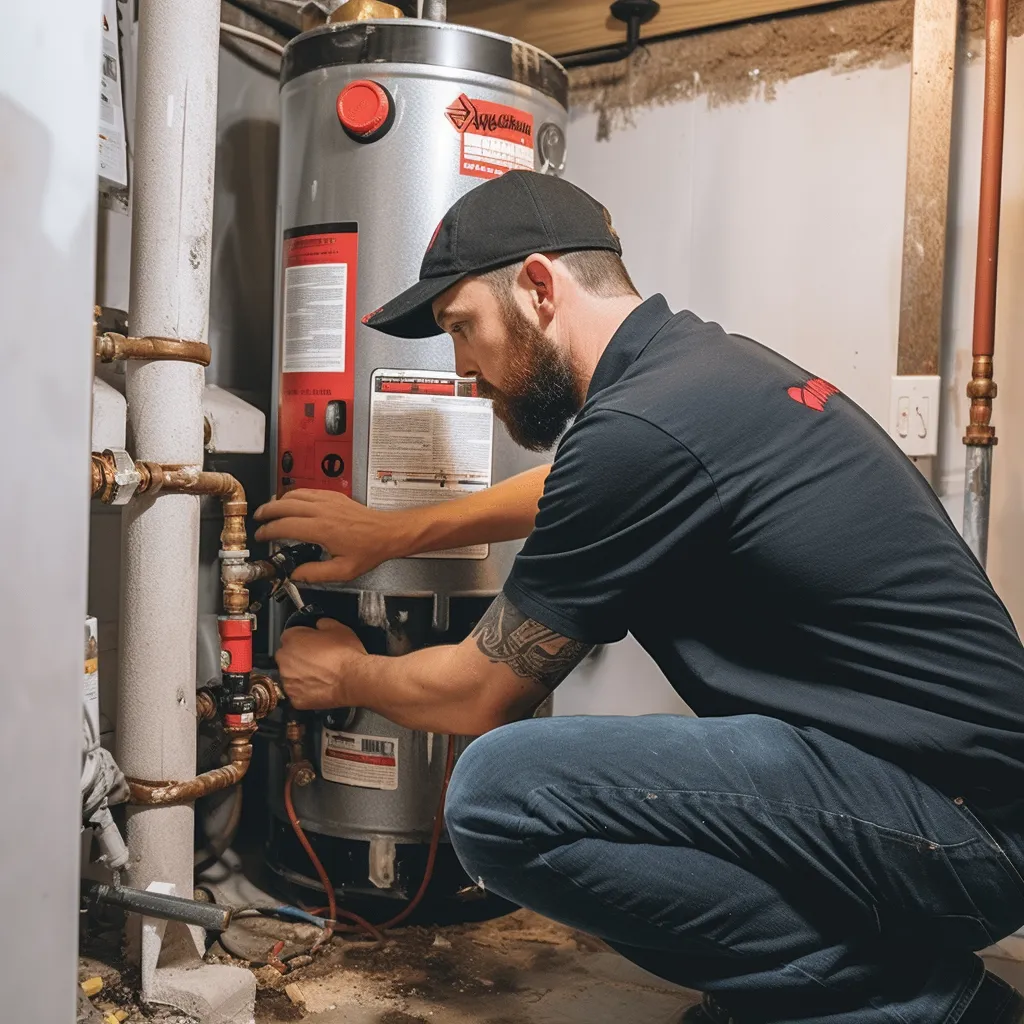
Are gas water heaters energy-efficient?
Gas water heaters are known for their energy efficiency. They use natural gas as a fuel source to heat the water, resulting in a more cost-effective and energy-saving option compared to electric water heaters. Gas water heaters have a higher recovery rate, which means they can heat a larger amount of water in a shorter amount of time. This makes them ideal for households that require a constant supply of hot water. Additionally, gas water heaters have lower operating costs and can save homeowners money on their energy bills. When it comes to water heater replacement in Plano, opting for a gas water heater can be a smart choice for those looking for an efficient and cost-effective solution.
What is the cost of buying and installing electric water heaters?
Are you considering purchasing and installing an electric water heater in Plano? If so, you may be wondering about the cost involved. The price of electric water heaters can vary depending on several factors, such as the brand, size, and features you choose. Additionally, the installation expenses should be considered. On average, electric water heaters in Plano typically range in cost from $500 to $1,500 or more. The price can increase based on the capacity, energy efficiency, and advanced technology of the unit. It's important to factor in the long-term savings potential that comes with selecting a more energy-efficient model, as it can help lower your monthly electricity bills. Apart from the purchase cost, it's crucial to consider installation expenses. While some individuals might opt for a DIY installation, it's highly recommended to hire a professional plumber for water heater replacement in Plano. The installation cost can vary depending on the complexity of the project. On average, you can expect to pay between $500 and $1,000 for professional installation.


What does it cost to buy and install gas water heaters?
On average, the cost of a gas water heater can range anywhere from $500 to $1500, depending on the brand, capacity, and energy efficiency. Higher-quality models with advanced features may be more expensive upfront but could potentially save you money in the long run through reduced energy consumption. The installation costs for gas water heaters can vary as well, depending on the complexity of the job and any additional modifications required. In the Plano area, the average installation cost for a gas water heater typically ranges between $500 and $1500. This cost includes labor, materials, permits, and disposal of the old water heater. To ensure a proper installation and to comply with safety regulations, it is recommended to hire a professional plumber or technician specializing in water heater replacements. They will assess your needs, recommend the best water heater option, and handle the installation process efficiently and effectively.
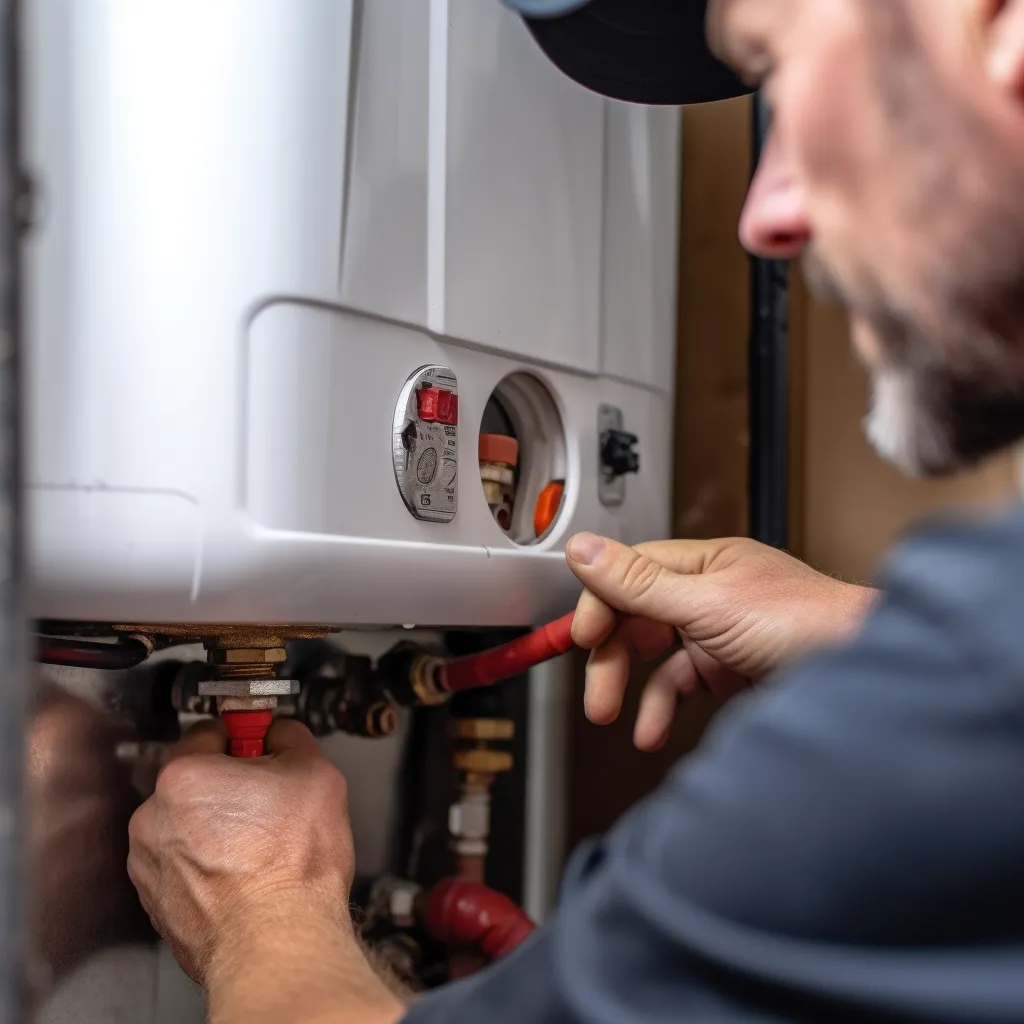
Maintenance needs of electric water heaters
When it comes to electric water heaters, regular maintenance is essential to ensure optimal performance and longevity. Here are some key maintenance needs to keep in mind for electric water heaters:
Flushing the Tank: Over time, sediment and mineral deposits can accumulate at the bottom of the tank, reducing efficiency and potentially causing corrosion. To prevent this, it's recommended to flush the tank at least once a year. This involves draining the tank and removing any built-up sediments.
Checking the Anode Rod: An anode rod is a sacrificial metal component that protects the water heater tank from corrosion. It's crucial to inspect the anode rod regularly and replace it if it's significantly corroded. Checking the anode rod every three to five years is generally recommended.
Testing the Pressure Relief Valve: The pressure relief valve is a safety feature that releases excess pressure in the tank. It's important to test this valve annually to ensure it's functioning correctly. Simply lift the lever to allow some water to be released, and then let it snap back.
Inspecting Electrical Components: Regularly inspect the electrical components of the water heater, including wiring, thermostat, heating elements, and connections. Look for any signs of damage or wear and tear. If any issues are detected, consult a professional technician for repairs or replacements.
Checking for Leaks: Inspect the water heater and its surrounding area for any signs of leakage. Leaks can lead to damage and water wastage. If you notice any drips or puddles, it's essential to address the issue promptly to prevent further damage.
Adjusting the Temperature: Verify that the temperature settings on the water heater are suitable for your needs. The recommended temperature is typically 120°F to 130°F (49°C to 54°C) to prevent scalding and improve energy efficiency.

Maintenance needs of gas water heaters
Here are some key maintenance tasks to keep in mind for gas water heater replacement in Plano:
Flushing the Tank: Sediment buildup can occur inside the water heater tank over time, reducing its efficiency and potentially causing damage. Flushing the tank annually helps remove the sediment, preventing corrosion and improving energy efficiency.
Checking the Pressure Relief Valve: The pressure relief valve is a crucial safety component of a water heater. It is essential to test this valve periodically to ensure it is functioning correctly, preventing excessive pressure buildup and potential water heater failure.
Inspecting the Anode Rod: The anode rod helps prevent corrosion by attracting minerals and corrosive elements. Checking the condition of the anode rod regularly is necessary as it may need replacement every three to five years based on water quality.
Cleaning the Burner and Venting System: Over time, the burner and venting system of a gas water heater can accumulate dirt, dust, and debris. Regular cleaning of these components promotes efficient combustion and prevents blockages that might lead to malfunctioning or dangerous situations.
Checking for Gas Leaks: Safety is paramount when dealing with gas appliances. Regularly inspecting for gas leaks is crucial, as any sign of gas odor or unusual sounds should be addressed immediately. It is recommended to seek professional assistance for gas leak detection and repair.
Insulating the Tank: To improve energy efficiency, consider insulating the water heater tank and pipes. This insulation helps minimize heat loss, reducing energy consumption and lowering utility bills.
Consult with Professionals: While some maintenance tasks can be done by homeowners, it is always wise to consult with qualified professionals for gas water heater inspection, repair, or replacement. They have the expertise and experience to identify potential issues and provide appropriate solutions.
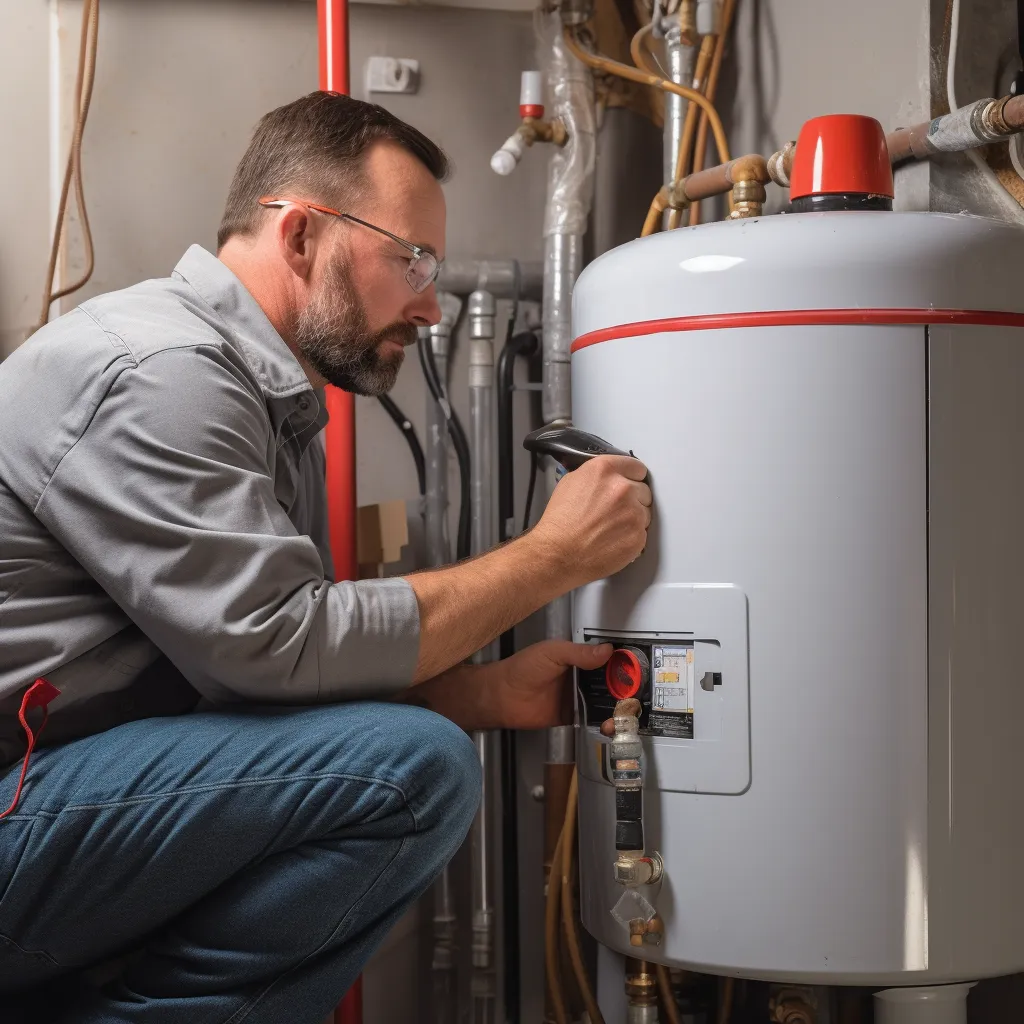
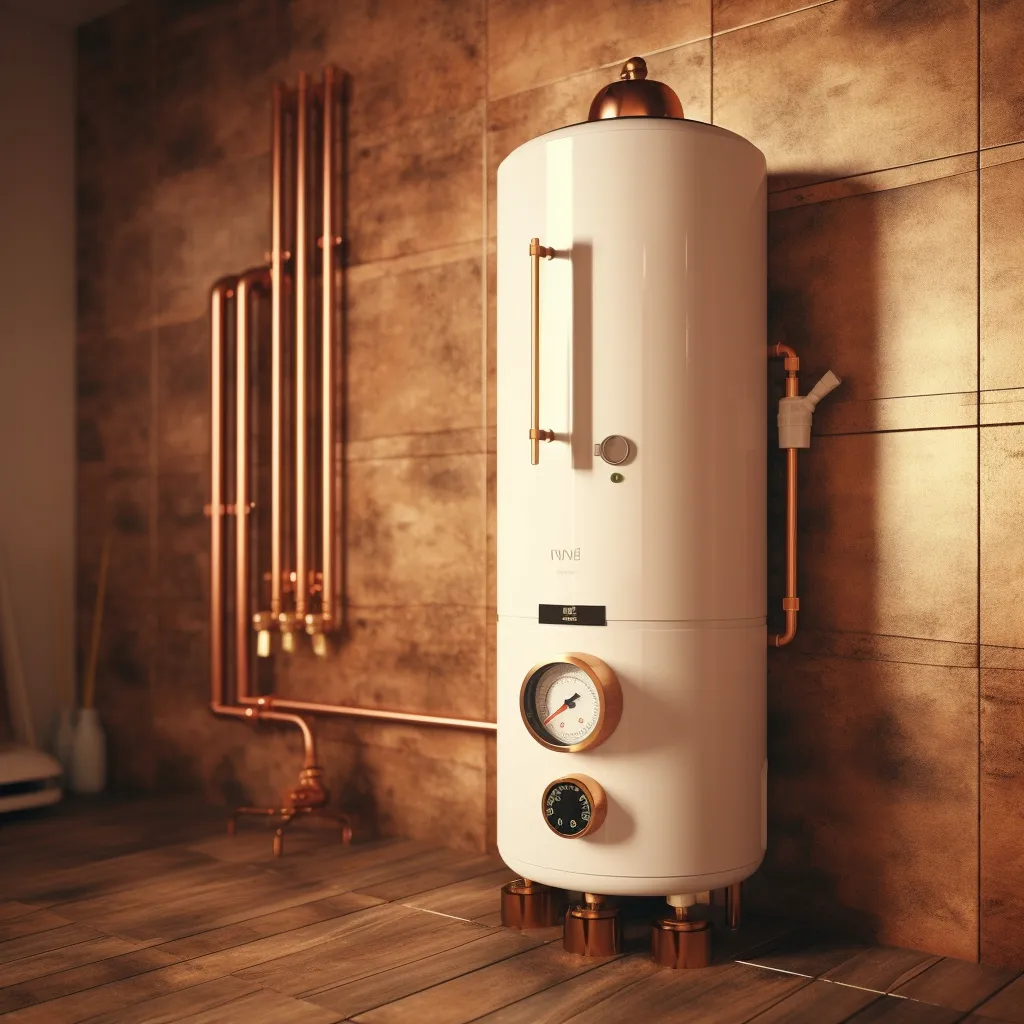
Safety considerations of electric water heaters
It is important to prioritize safety when using an electric water heater, particularly during the installation process. One crucial aspect to consider is the risk of electrocution. To prevent this hazard, proper grounding and adherence to manufacturer's instructions are necessary. Moreover, malfunctions can also pose a threat to safety. By having a licensed professional handle the installation, you can minimize the chances of such issues arising. These experts have the necessary knowledge and expertise to ensure a safe and reliable operation of your electric water heater. Another hazard that should be addressed is the risk of fire. Overheating is a common cause of water heater fires, as it can lead to the ignition of flammable materials nearby. Hence, it is important to choose an appropriate location for your water heater, keeping it away from any potential sources of ignition. To summarize, prioritizing safety is of utmost importance when dealing with electric water heaters. By following the manufacturer's instructions, having a licensed professional install the unit, and taking measures to prevent fire hazards, you can ensure a secure and efficient operation of your water heater. If you require a water heater replacement, make sure to contact a reputable professional who can assist you with the installation process while prioritizing safety every step of the way.

Safety considerations of gas water heaters
When it comes to the safety of your household, prioritizing precautions while using gas water heaters is of utmost importance. One critical step is to install a carbon monoxide detector in close proximity to your water heater. This device serves as an essential warning system, alerting you to any potential leaks of this silent, odorless gas. Additionally, regular inspections and maintenance of your water heater are vital in preventing hazardous situations. By periodically checking the unit for any signs of damage, leakage, or malfunction, you can address issues promptly and ensure its optimal performance. Timely maintenance can contribute to the longevity and efficiency of your water heater, ultimately ensuring your safety. Furthermore, it is essential to maintain a clear and unobstructed area around your water heater. By keeping flammable materials, such as chemicals, paper, or other combustible items, away from the unit, you can reduce the risk of accidental fires or explosions. This simple precaution can go a long way in creating a safer environment within your home.
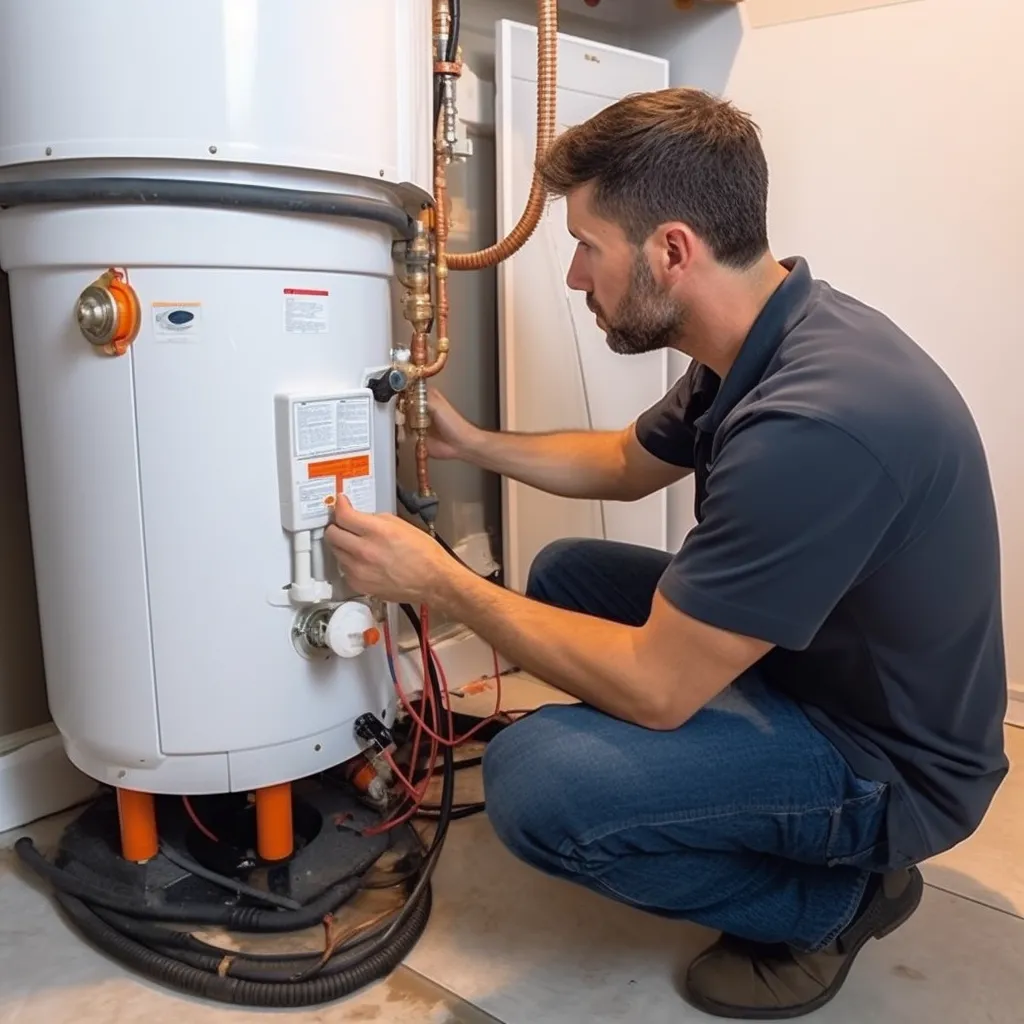
How to choose between electric vs gas water heater
When it comes to selecting the right water heater for your home, one of the major decisions you'll need to make is whether to go for an electric or gas water heater. Both options have their own set of advantages and considerations, so it's important to understand the differences and weigh them against your needs.
Electric water heaters are a popular choice due to their simplicity and ease of installation. They don't require any venting, making them versatile and suitable for any home.
Electric water heaters are highly efficient, converting almost all of the energy they consume into hot water. Gas water heaters, on the other hand, offer some distinct advantages as well. They tend to provide faster heating and a higher recovery rate, meaning they can provide hot water for multiple tasks simultaneously.
Gas water heaters are also generally more cost-effective to operate in areas where natural gas is readily available.
To make an informed decision, consider factors such as energy efficiency, installation costs, and utility costs in your area. You should also take into account the specific demands of your household, such as the number of people and their hot water usage patterns. If you're unsure, consulting a professional plumber or water heater specialist can help you determine the best option for your specific needs.
Finding the right option for your needs is crucial. There are several factors to consider, including your personal preferences, budget, and lifestyle. Determining the most suitable water heater involves evaluating different aspects, such as energy efficiency, installation costs, maintenance requirements, and the fuel sources available in your area. Ensure that you assess your specific hot water needs. This includes considering the number of occupants in your household and the average daily hot water usage. By understanding your requirements, you can select a water heater that matches your usage patterns, thus avoiding the hassle of running out of hot water during peak periods. Long-term cost savings are another essential consideration. Although some water heaters may have a higher initial cost, they might lead to significant savings over time due to their energy efficiency. It's essential to compare the operating costs of different models to strike a balance between upfront expenses and long-term savings. Additionally, take into account any specific environmental considerations. If reducing your carbon footprint is important to you, consider opting for a water heater that utilizes renewable energy sources or has a high energy efficiency rating. This way, you can contribute to environmental sustainability while enjoying hot water at the same time.

Why you should hire a licensed professional to install your water heater
Water heater replacement in Plano is a task that requires careful consideration and expertise. While some may be tempted to tackle the job themselves to save a few bucks, it is important to understand the risks involved. Hiring a licensed and experienced professional is highly recommended for this type of work. A professional water heater replacement specialist possesses the knowledge, skills, and experience to ensure a safe and proper installation. They are well-versed in local regulations and safety measures, minimizing the risk of any accidents or mishaps. By entrusting this task to a professional, you can have peace of mind knowing that your safety is the top priority. Additionally, a licensed professional is equipped to handle any potential issues that may arise during the installation process. They can identify and troubleshoot problems efficiently, ensuring that your new water heater is installed correctly and functions reliably. While it may be tempting to save a few dollars and attempt a DIY water heater replacement, it is not worth compromising your safety. Investing in a professional for this task is a smart and responsible choice. So, when it comes to water heater replacement in Plano, don't take any chances - hire a licensed professional and rest easy knowing that your installation is in capable hands.
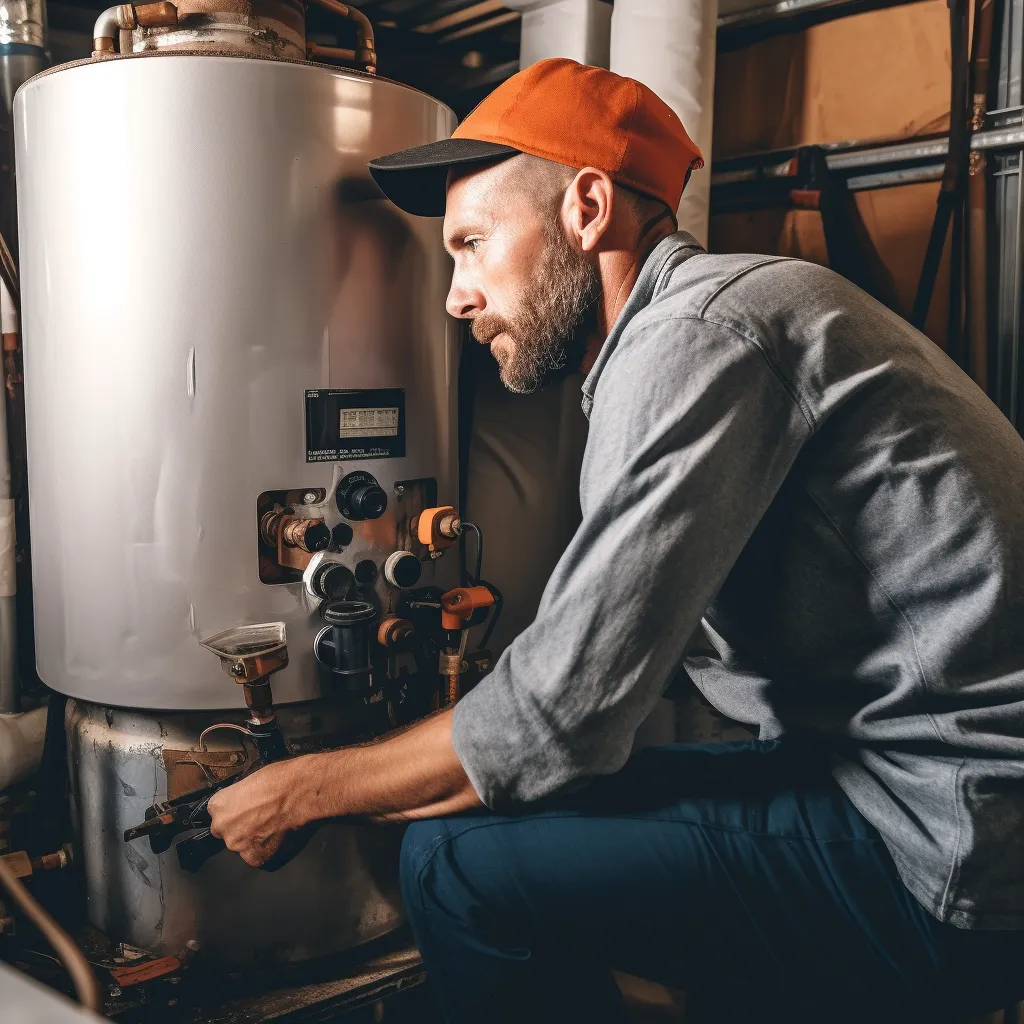
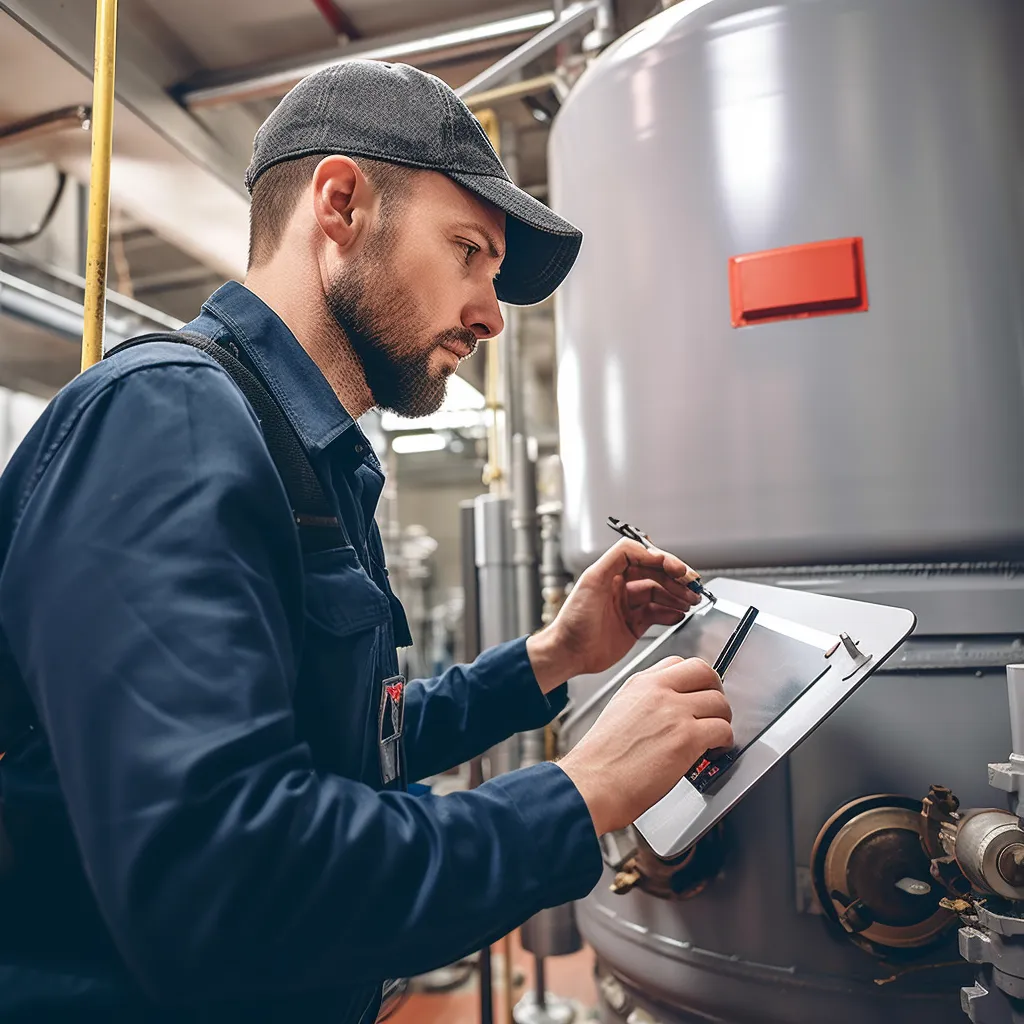
Be sure to do your research
If you're in need of a water heater replacement, it's crucial to take the time to thoroughly research your options. With both electric and gas models available, it's important to weigh the pros and cons of each. Apart from considering the features and benefits of different water heaters, safety considerations and installation requirements should also be taken into account. Planning is key when it comes to finding the ideal water heater for your specific requirements. By carefully considering factors such as energy efficiency, capacity, and cost, you can make an informed decision. It's worth noting that while electric water heaters may provide more flexibility, gas models are often preferred for their faster heating times and lower operational costs. One aspect that should never be overlooked is the importance of proper installation. Hiring a licensed professional is not only highly recommended but also necessary to ensure the safe and efficient operation of your new water heater. Their expertise and knowledge will guarantee that your replacement is done correctly, minimizing the risk of potential hazards. In conclusion, when it's time to upgrade your water heater, conducting thorough research and considering factors such as safety, installation requirements, and the advantages of different models is essential. By taking these factors into account and enlisting the help of a licensed professional, you can find the perfect water heater for your Plano home, ensuring reliable hot water for years to come.
Contact Us
GET IN FULL TOUCH
PHONE (469) 838-5525
EMAIL:
jason@waterheatersinplanocom
Evolution Plumbing
Plano, TX 75023
Texas Plumbers License: M-44821
